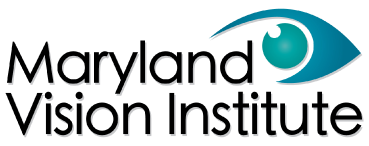Many people in their 50s and 60s find it a bit ‘eye-opening’ to learn that cataract development actually begins in our early 40s. Which is about the same time we start to need reading glasses to see up close.
The official ophthalmology term for this condition is called ‘Presbyopia,’ which is part of the normal aging process of our eyes when they gradually begin to lose their ability to focus on objects up close. That’s because the clear natural lenses in our eyes – that start out soft & flexible – gradually become rigid and lose their ability to help us focus on nearby objects. This ‘aging’ process is actually the early stages of cataract development.
The term Presbyopia originally comes from the Greek term “Old Eyes.” And that’s the same way we feel we are forced to start donning reading glasses to view a text message, see our watch or watch Netflix on our mobile devices. Presbyopia just makes us look older than we feel and until now, there was no permanent fix.
Today, Maryland Vision Institute is now performing ‘Laser Lens Replacement,’ which combines the safety and proven processes we utilize in Laser Cataract Surgery…with the benefits of new-technology intraocular lenses that provide a seamless quality of vision at all distances. In layman’s terms, we’re simply removing the aged, rigid natural lens in our eye and replacing it with a uniquely designed Intraocular Lens Implant (IOL) that can be customized to fit your personal lifestyle and hobbies.
Our IOL of choice for patients undergoing Laser Lens Replacement is the Tecnis® Symfony, an exciting new multi-purpose cataract lens implant that can not only help you see clearly at all ranges of vision…but can also correct your Astigmatism at the same time. Our breakthrough Symfony IOL is also the only ‘extended-depth-of-focus IOL designed to correct presbyopia by helping you focus on near objects.
And perhaps one of the biggest benefits of middle-aged patients who under Laser Lens Replacement, you will NEVER need cataract surgery!
For people under age 65, Laser Lens Replacement is an elective procedure that is normally not covered for most insurance companies. It is also not an ideal procedure for everyone. Patients who are best suited for Laser Lens Replacement have reasonable post-operative expectations and understand the limitations of even the best performing manufactured lens.
But for those patients who desire a proven and permanent alternative to the continuing loss of near vision – and eventual cataract development that occurs in our middle ages – Laser Lens Replacement is quickly becoming the procedure of choice for both surgeons and patients alike.



